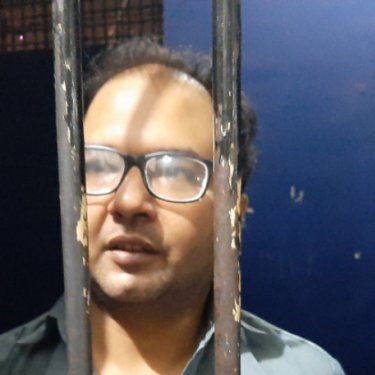Pakistan: Surge in harassment of journalists who “criticize” on social media

Reporters Without Borders (RSF) calls for an end to attempts to censor journalists who criticize or question the authorities on social media in Pakistan. In the past few days alone, three journalists have been the victims of arbitrary accusations such as inciting rebellion, treason and anti-Pakistan activities. This harassment must stop, RSF said.
The targets of this wave of police and judicial harassment include Bilal Farooqui, a news editor at the Express Tribune newspaper, who received an unwanted visit at his home in the southern city of Karachi on the evening of 11 September.
“At around 7 p.m., my landlord told me there were ‘surveyors’ downstairs seeking a meeting with me,” Farooqui said. “I went down and saw three or four persons in plain clothes and two cops in police uniform. They arrested me, put me in a police van, blindfolded me and interrogated at the police station.”
Ostensibly, the police were acting on a complaint filed by a member of the public accusing him of “inciting citizens to rebel against the military” – a claim that is “totally baseless,” according to Farooqui, who says the authorities have had him in their sights ever since he posted messages on Facebook and Twitter regarded as critical of the military.
The complaint also accused Farooqui of “inciting sectarian hatred.” An accusation of this kind “could put my life in danger,” he added, explaining that it could be exploited by any extremist religious group. Farooqui was finally released on his lawyer’s personal guarantee the next day.
It was also on 11 September that the police in the northeastern province of Punjab opened an investigation into Absar Alam, a journalist who used to head the Pakistan Electronic Media Regulatory Authority (PEMRA), for suspected “sedition” and “treason.” In this case, the police were acting on a complaint filed by a lawyer accusing him of posting “highly inappropriate” comments on social media. In reality, Alam had simply criticized Prime Minister Imran Khan and Pakistan’s all-powerful military.
The third victim of the past few days is Asad Ali, a journalist working for Samaa TV, who reported on Twitter on 14 September that he was the target of a complaint by the police in Rawalpindi, a city adjacent to the capital, Islamabad, accusing him of “anti-Pakistan [posts] and propagating against the Pakistan army on social media.”
Ali has not been notified about the specific reasons for the complaints but in recent weeks he tweeted articles about alleged corruption involving Asim Saleem Bajwa, a retired army general who now heads the China–Pakistan Economic Corridor, a package of infrastructural development projects resulting from an accord the two countries signed in May 2015.
“The charges brought against Bilal Farooqi, Absar Alam and Asad Ali are baseless and constitute judicial harassment aimed at suppressing all criticism of the government, in particular, on social media,” said Daniel Bastard, the head of RSF’s Asia-Pacific desk. “We urge the authorities to put a stop to this harassment and we remind the executive branch of its duty to respect the right of journalists to express views that do not necessarily concur with the government’s.”
It was because of a tweet critical of the authorities – the judicial authorities, in this case – that the journalist Matiullah Jan is currently facing a contempt of court charge. Worse still, it also led to his being abducted by around ten men in broad daylight in Islamabad on the eve of his appearance before the supreme court on 21 July. His abductors released him after holding him for 12 hours, during which he was tortured.
Journalistic content regarded as insulting towards the government is also liable to be censored openly and directly. A new book by the journalist Sohail Warraich, a compilation of articles he wrote for the newspaper Jang and the BBC’s Urdu-language website, was withdrawn from bookshops yesterday. A cartoon on the cover showed the army chief, Gen. Qamar Javed Bajwa, sitting in a chair and the prime minister sitting at his feet.
Pakistan is ranked 145th out of 180 countries in RSF's 2020 World Press Freedom Index.


